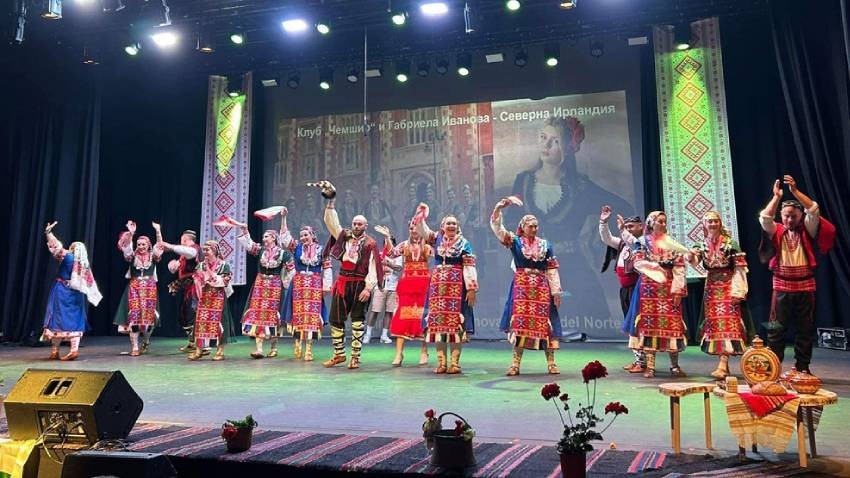There are no data regarding the exact number of Bulgarian dance ensembles operating abroad. But there is one thing that is certain – they are amateur groups scattered across all continents, acting as a bridge between Bulgaria and the rest of the world. Dr. Julia Pocheva from the Bulgarian Academy of Sciences’ Institute of Ethnology and Folklore Studies has been making a study of amateur folklore ensembles inside and outside Bulgaria as part of a project connected with the dimensions of our national and European identity. She reaches the conclusion that these activities have developed as hubs of social and cultural communication abroad. “People get together in these dance groups who would otherwise never meet, and that builds the kind of environment where friendships are forged, as well as a sense of community, of mutual assistance, of celebrating and living together,” Julia Popcheva says. “They become the motor and the vehicle of Bulgarian culture in other countries where they present it to the local community. For example, during the so-called Culture Days Bulgarian stands are put up presenting Bulgarian cuisine, flyers with information about the country, various objects from the traditional lifestyle, as well as our folk dances, national costumes and songs, everything the group or association in question possesses which can give an idea of the country.”
Very often, these dance groups have to undergo a legitimation process with the local authorities, and to this aim they register their own associations which become the core of community life for Bulgarians living abroad.

The dance groups of the Bulgarians living in other countries have their own social network, Julia Popcheva says. Every year they get together at the travelling festival called In the Town Square of the Other Bulgaria. 
This year’s festival was in May in Palma de Mallorca. The festival has been helpful in another way – an Association of Bulgarian Folk Ensembles Abroad was set up a while ago.
Moreover, there is an entire market connected with folklore festivals in Europe. The groups commission clothes, props, music, teaching aids from Bulgaria. Professional choreographers from the country frequently train these ensembles in the respective country. “So the bond between Bulgaria and these groups is very much alive,” says Julia Popcheva.

More:
Interview by Yana Boyanova for BNR’s Europe-New Generation
Compiled by Veneta Nikolova
Photos: Association of Bulgarian Folk Ensembles Abroad, Bulgarian Association, Northern Ireland, Institute of Ethnology and Folklore Studies - Bulgarian Academy of Sciences, Facebook/ Bulgarian folklore club Chemshir in Armagh, Northern Ireland
In the Bulgarian folk tradition, the feasts of Lazarus Saturday and Palm Sunday are related holidays. From Lazarus Saturday (Lazarovden in Bulgaria), girls prepare for the ritual kumichene, which is performed on the morning of Palm Sunday. A very old..
In April and May the visitors of the Strelcha Historical Museum will have the opportunity to get acquainted with the traditions connected with the Easter holiday cycle through the exhibition A Fine Easter, a Finer St. George’s Day . Easter..
Lazarus Saturday is widely known in Bulgaria as Lazarovden , celebrated by Orthodox Bulgarians on the day before Palm Sunday. The main rite is the lazaruvane - a traditional custom centred on themes of love and marriage. Girls over the age of 16,..

+359 2 9336 661
